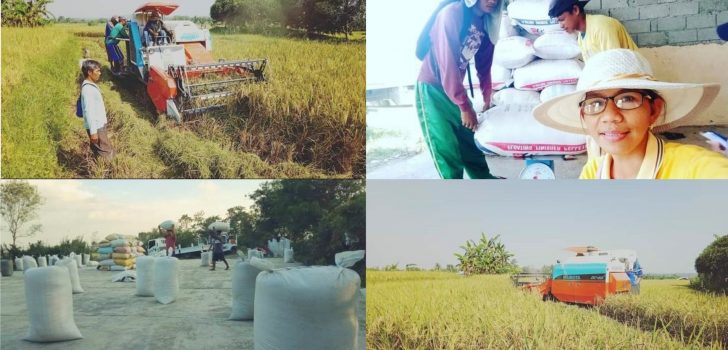
Palay Production Enterprise in Ramon reaps success
Situated on the western part of Isabela province in Northeastern Philippines, Ramon town heavily relies on agriculture for its sector to thrive.
The municipality, dubbed as Tilapia Capital of the Philippines, also cultivates its land with agricultural products such as rice and corn.
With the peril of climate change, rice farmers are greatly affected. When a typhoon hits, the expense of land preparation brings a long lasting impact as their soon-to-be agricultural produce is already struck. Their income perishes and another fee to prepare the land for the next cropping season is a nightmare that a farmer can hardly imagine.
With assistance from the Department of Agriculture’s Philippine Rural Development Project (DA-PRDP), the RAMCOR Farmers Multi-Purpose Cooperative (RFMPC) based in Barangay Planas now helps sustain the farmers need in their farming operations to include land preparation.
Jacinta Apoy, RFMPC Manager, relayed the importance of the equipment in tilling their lands.
“I remember when Typhoon Lando with International Name Koppu, struck us last 2015. Almost all of our 818 hectares of rice land were devastated,” she said.
Based on the Municipal Agriculture Office of Ramon, the municipality had 2,990 hectares of partially damaged matured palay then. Likewise, assessments made by the cooperative officers indicated that approximately 35% of rice crops had been destroyed, and they incurred an average loss of PhP10,696,875.00 (407.5 hectares x 35% x 50 kilos/Cavan @ Php 15.00 per kilo of fresh rice) from their farming business.
After the typhoon, members are again overwhelmed with the various expenses to rehabilitate their farms. The immediate need that they perceived should be addressed is to lower their land preparation costs. This is because of the cooperatives’ lack of farm tractors to cater to the members’ needs. Currently, each member spends a total of Php 5,000.00 per hectare for land preparation using hand tractors before their farms are ready for planting. With a 4-wheel tractor, members usually pay PhP2,500.00 per hectare for land preparation until ready for planting.
The DA-PRDP heeds the call of the request of the proponent group to ease their burden, specifically on cost reduction and the effects of climate change.
Thus, in Ramon, the cooperative has received 4-wheel drive tractor with attachments such as one (1) unit – rotavator; one (1) unit – cage roller, and one (1) unit – trailer under PRDP’s Small Livelihood Program (SLP).
Apoy said that the group is thankful for the intervention because it lowered the cost of land preparation of its member.
At present, the cooperative manages the use of farm mechanization on its member and contributes to the rice industry’s growth in Ramon.
“The importance of immediate need to fast tract modernization of agriculture through the acquisition of modern farm machineries will spur economic development,” she ended. (Mark Anthony Gallibu, RPCO2 InfoACE Unit)
